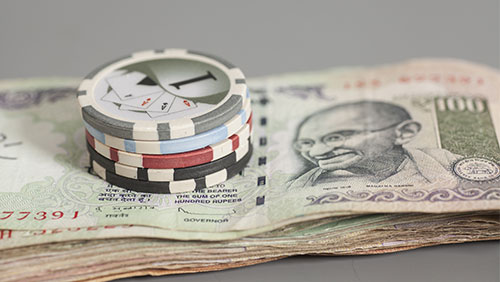Despite regulatory setbacks in the country, poker is gaining traction in India. The second season of the Poker Sports League (PSL) held in Goa is a testament to the game’s rise in popularity. The PSL attracted a large field of players in the 20s, which is a strong indication of a future trend that will see poker continue to expand in the country.
 Indian courts have argued against poker, saying it’s a game of chance. Anyone who plays poker knows that this simply isn’t the case, and that it requires a great amount of skill. PSL’s co-founder Amit Burman recognizes the skills involved. After the completion of the PSL season, he said, “Unfortunately, when we think of poker we think if gambling and these two things are very different. Poker is a game of skills which requires a lot of talent, hard work and dedication to master.”
Indian courts have argued against poker, saying it’s a game of chance. Anyone who plays poker knows that this simply isn’t the case, and that it requires a great amount of skill. PSL’s co-founder Amit Burman recognizes the skills involved. After the completion of the PSL season, he said, “Unfortunately, when we think of poker we think if gambling and these two things are very different. Poker is a game of skills which requires a lot of talent, hard work and dedication to master.”
The gaming industry in India is a large one; however, there is still a long way to go for live tournaments. So far in 2018, online poker controls about 92.5% of the action, leaving only a small slice for live tournaments. PSL CEO Pranav Bagai hopes this will change, and has solicited help from chess Grand Master Viswanathan Anand, who currently serves as the league’s brand ambassador. The move, says Bagai, should raise a significant amount of awareness to propel poker forward at a faster pace.
Sam Reddy, of the PSL team, the Andhra Bullets, said, “When I returned from US, I started learning about the game of poker and when I played I realised how skillful it can get. All my friends play poker instead of three patti or rummy. People are now shifting to poker. I invested in it because I know it will become better in the future. Andhra Pradesh has so many clubs in Vijayawada and Visakhapatnam but not in Telangana. Even the online game is also banned.”
He added, “The game has potential. The lack of an association is a huge roadblock. There are around 400 to 500 professional poker players in the country while in Telugu States we have around 20 players which is a good sign.”
As the PSL continues to leave gain a stronger reputation, it will leave an indelible mark on the country’s lawmakers. While it certainly won’t happen tomorrow, in relatively short time there will be a paradigm shift in the country that sees a greater acceptance of poker for what it truly is—a game of skill.